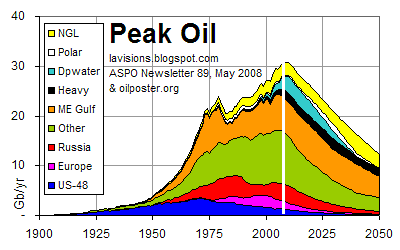Children, families and society research projects
This pilot research project draws on qualitative research across three secondary schools in Staffordshire to explore how children understand the current and future challenges linked to potentially limited supplies of oil.
About the Project
 Virtually every aspect of modern industrial life-food production and distribution, transportation and communications requires oil. It is argued that the success of the world economy, in the ‘prosperous’ 20th century, was driven by cheap, oil based energy. Over the last century, demand for oil has risen dramatically and the physical structure of our society is organised around the assumption that there will always be plenty of it. But academics and energy experts have warned about a peak in oil production as a result of which, oil becomes more expensive as the availability of new oil declines.
Virtually every aspect of modern industrial life-food production and distribution, transportation and communications requires oil. It is argued that the success of the world economy, in the ‘prosperous’ 20th century, was driven by cheap, oil based energy. Over the last century, demand for oil has risen dramatically and the physical structure of our society is organised around the assumption that there will always be plenty of it. But academics and energy experts have warned about a peak in oil production as a result of which, oil becomes more expensive as the availability of new oil declines.
More than 60 years after the geophysicist Hubbert (1956) predicted a peak in oil production, similar questions to those he raised then about US oil production are being asked about oil production worldwide. If global oil production does peak and begin to trend downwards, how might this affect oil prices? Once/if a peak takes place, how steep will the curve of decline be? What will this mean for the way we live our lives?
This research addresses the ways in which children understand (talk about/engage with/respond to/conceptualize) the political, economic and social implications of peak oil.
What, how and where (in the curriculum) are children taught about the issues connected to peak oil?
Key questions
- How do children understand the concept of peak oil and its implications for their families and for their own current and future lives?
- What significance is attached to peak oil in children’s understandings of a) inequalities and inequities b) geopolitical struggle and upheaval?
- To what extent do children’s understandings vary according to gender, ethnicity, age and socio-economic status.

This project was funded by the British Academy (SG110870) and the research was completed in 2013.
Posted on 20 January 2017.
Keele University sociologist Dr Lydia Martens is taking a leading part in a prestigious food safety collaborative programme of research and knowledge application.
Dr Martens, Senior Lecturer in the School of Social Science and Public Policy and Lead of the Children, Families and Society research cluster in the Centre for Social Policy, will be working on the EU Horizon2020 funded collaborative project, entitled SafeConsumE, which aims to provide effective, science-based and sustainable strategies for food authorities, market actors and the research community to help reduce risk and the health burden from food-borne illness in Europe.
The collaboration, led by Nofima in Norway, will develop and evaluate education programmes, sustainable policies and technologies and products including apps, hygiene concepts, and kitchen utensils to help create safe practices.
Dr Martens said: “It may be that we will develop a type of food packaging that activates a visual indicator when Listeria bacteria have developed in a food product, and it should be discarded. However, the aim of SafeConsumE is not only to achieve better food safety, but also to enhance sustainability. So we will be looking at longevity in foods; how freshness may be maintained without compromising on safety and carbon footprint.”
“The social science research that is part of the work of the programme is informed by methodologies for researching mundane everyday life which we developed in earlier research, funded by the Economic and Social Research Council and the Food Standards Agency in the UK.”
“Together with a postdoctoral researcher, I will work on the social science research packages of the programme, and on the interface between the science and the design and innovation of tools and technologies to stimulate safe practices during food shopping and when working with food in domestic kitchens.”
SafeConsumE will support transformation towards a more healthy population and cost-efficacy by reduced foodborne illness, and a more sustainable community as a result of less food-waste and environmentally friendly solutions.
The research will cover the five most important hazards causing food-borne disease, and consumer behavior across Europe will be described using a risk-based methodology, utilizing the strengths of high-throughput surveys together with in-depth qualitative methodology.
Theories of practices have in recent years become an important approach for researching routine everyday life, developed by members of the consumption network of the European Sociological Association, and utilized also in social science research on sustainability. Dr Martens is a longstanding member of this network and her published outputs have developed insight into the methodological implications of researching routine everyday practices, like cooking and cleaning, in the home.
To achieve high implementation and innovation power, scientists will work together with consumers, authorities and different market actors. The collaboration consists of 32 collaborators from HEIs, NGOs, government departments and businesses.


